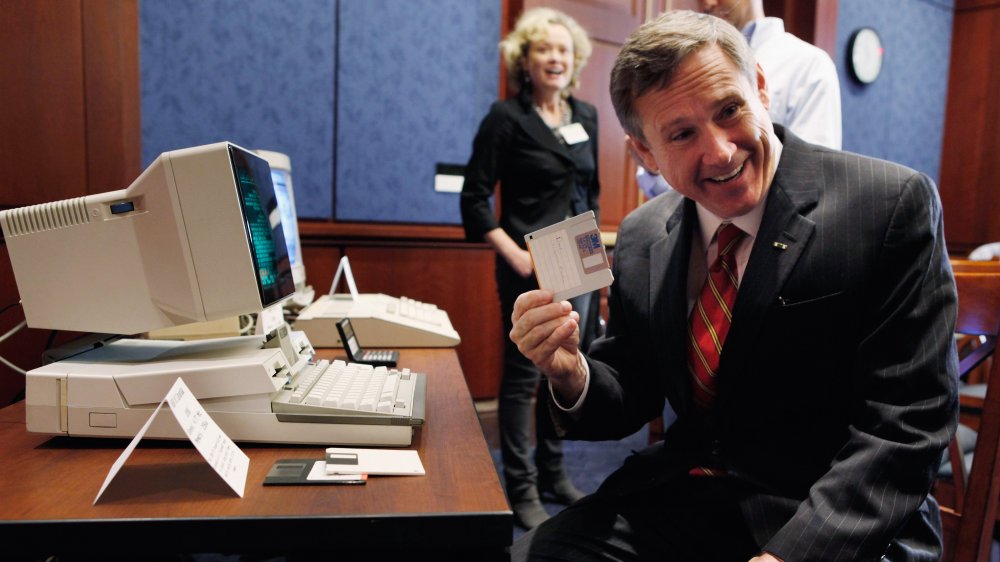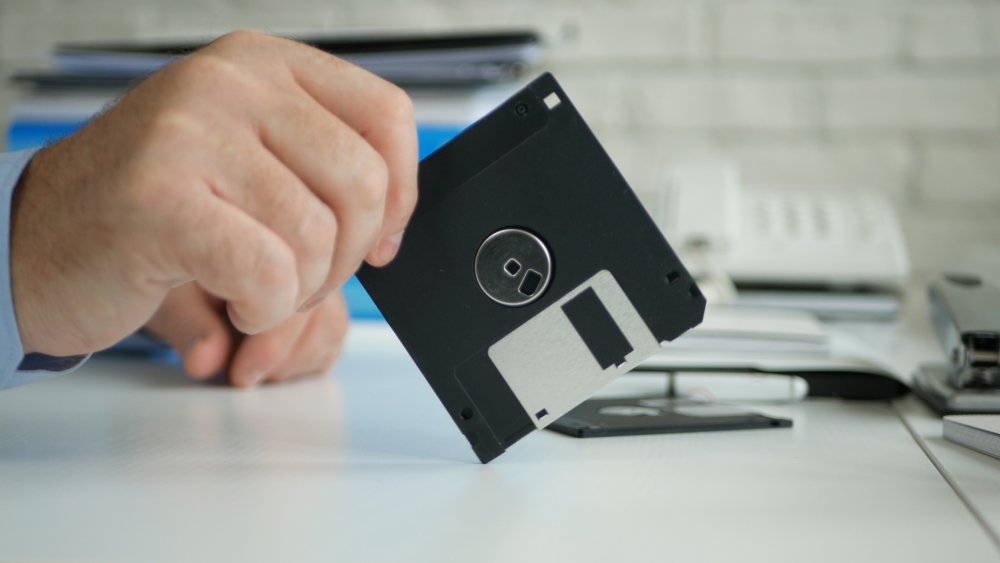U.S. Nuclear Program Finally Flips Off Floppy Disks
In many ways, nuclear capacity represents the pinnacle of human scientific achievement, which makes it a little weird that up until 2019, the U.S. has been relying on 8-inch floppy disks to control the world's most substantial nuclear arsenal.
According to the New York Times, the system America uses to control its nukes is called the Strategic Automated Command and Control System, or SACCS.
SACCS "is still in use today but no longer uses floppy disks," David Faggard, a spokesman for the Air Force Global Strike Command, which manages the Air Force portion of the arsenal, told the New York Times. "Air Force Global Strike Command is committed to modernizing for the future."
That's great guys, but floppy disks have been archaic since Bill Clinton was flopping around the Oval Office. What gives?
A long overdue update for America's nuclear program
The system and its floppies had been earmarked for an update since 2016, but as the report warned, was one of many government computer systems relying on "outdated software languages and hardware parts that are unsupported," some of which were "at least 50 years old."
To be fair, Slate pointed out that outdated systems reliant on floppy disks are a kind of security in themselves, since they don't rely on the Internet. Unless you're doing the hacking in person a la Dennis Nedry in Jurassic Park, there's no way to access it. But still — do you really want the word "floppy" associated with the fate of the human race?
Moving from floppy to a solid state
The update was apparently completed in June, replacing the old floppies with a "highly secure solid-state digital storage solution," according to Air Force spokesman Justin Oakes, but not many people took notice at the time. In the case of nukes, no news is good news, so things appear to be running smoothly — you know, the kind of operation you'd expect from a global superpower.
The new solid-state solution "exponentially increased message storage capacity and operator response times for critical nuclear command and control message receipt and processing," according to Oakes.
Ah, solid. That sounds more like it. While floppies will always have a nostalgic place in our hearts, this is a case where they're better off as an 8 kilobyte memory, lest they drive us to extinction.


